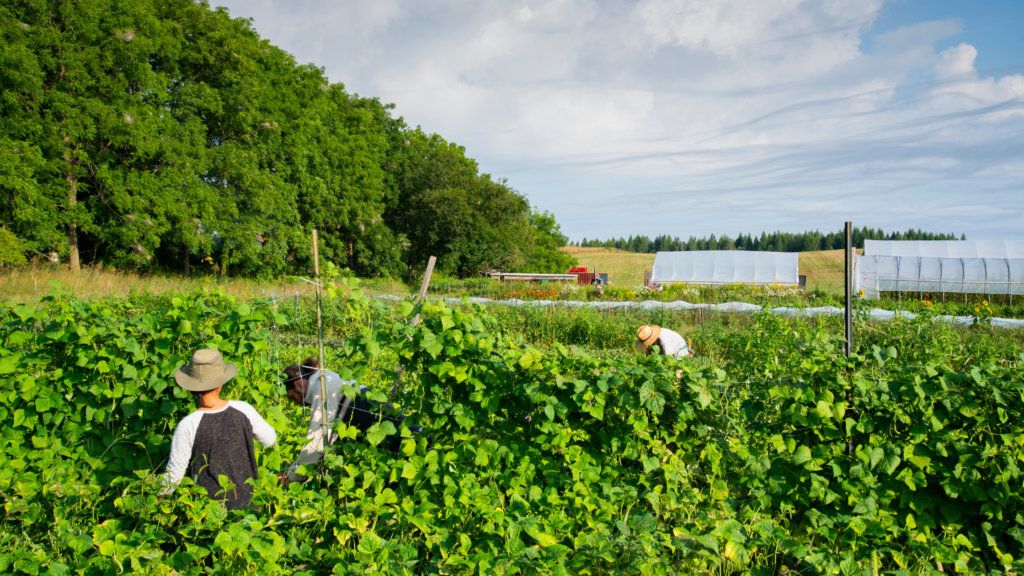Future Trends in Impact Investing for Sustainable Growth
As the world faces growing environmental and social challenges, impact investing has become an increasingly important approach for driving positive change. Impact investing allows investors to align their financial goals with their values, promoting sustainable development while generating returns. As the field continues to evolve, new trends are emerging that will shape the future of impact investing. These trends offer insights into how capital can be more effectively deployed to foster a more inclusive and sustainable world. The Growing Importance of ESG Integration Environmental, Social, and Governance (ESG) Factors Environmental, Social, and Governance (ESG) factors have become central to investment strategies as more investors recognize their long-term significance. Companies with strong ESG practices are often better equipped to manage risks and seize opportunities, making them more attractive to investors. This shift towards sustainable investment reflects a growing awareness that addressing ESG issues is not only beneficial for society but also critical for the financial performance of businesses. Regulatory Support and Reporting Standards Governments and regulatory bodies are playing an increasingly significant role in advancing ESG integration. New regulations and mandatory reporting standards are driving transparency and accountability, making it easier for investors to evaluate the impact of their investments. As these regulations continue to develop, we can expect greater standardization in ESG reporting, which will further embed these factors into mainstream investment practices. Technological Innovations Driving Impact Investing Blockchain for Transparency and Traceability Blockchain technology is transforming impact investing by enhancing transparency and traceability. It allows investors to monitor the flow of funds and verify the impact of their investments in real-time. This technology is particularly useful in sectors like sustainable agriculture, where it can ensure that investments reach the intended beneficiaries and achieve the desired outcomes. As blockchain technology continues to advance, it will likely play an even more prominent role in ensuring the integrity and effectiveness of impact investments. AI and Big Data for Impact Measurement Artificial Intelligence (AI) and big data analytics are revolutionizing how impact is measured and reported. These technologies enable investors to analyze large datasets and gain deeper insights into the social and environmental effects of their investments. As AI and big data become more sophisticated, they will help refine impact measurement, ensuring that investments deliver tangible results. This evolution in impact measurement will provide investors with more accurate and meaningful data, enhancing the overall effectiveness of impact investing. The Rise of Thematic Impact Investing Targeted Investment in Specific Issues Thematic impact investing is gaining traction as investors seek to address specific global challenges through targeted investments. This approach allows investors to focus on areas that align with their personal values or strategic goals, such as climate change, gender equality, or affordable housing. By concentrating capital on particular themes, investors can drive significant progress in these areas while also benefiting from opportunities in rapidly growing sectors. Sector-Specific Funds The growth of sector-specific funds has made it easier for investors to allocate resources to particular themes. These funds are designed to channel investments into industries and companies that are directly contributing to solving critical global issues. For example, renewable energy funds focus on companies developing clean energy solutions, while social impact funds target businesses that promote social inclusion and economic empowerment. As thematic investing becomes more popular, we can expect to see a broader range of sector-specific funds, offering investors more opportunities to align their portfolios with their values. Expanding Access to Impact Investing Lowering Barriers to Entry Historically, impact investing was often limited to institutional investors and high-net-worth individuals due to high minimum investment thresholds. However, recent developments have lowered these barriers, making impact investing more accessible to a broader audience. Crowdfunding platforms, microfinance opportunities, and retail impact funds now allow smaller investors to participate in impact investing, democratizing access to this growing market. The Role of Financial Technology Financial technology (FinTech) is playing a critical role in expanding access to impact investing. Platforms that utilize FinTech are simplifying the investment process, offering user-friendly interfaces, and providing detailed information on investment opportunities. These platforms also enable investors to monitor the impact of their investments in real-time, making it easier for them to engage with and understand the impact of their portfolios. As FinTech continues to evolve, it will likely further enhance accessibility and transparency in impact investing. The Role of Public-Private Partnerships Collaboration for Greater Impact Public-Private Partnerships (PPPs) are becoming a cornerstone of impact investing, as governments and private investors collaborate to tackle large-scale social and environmental challenges. By pooling resources and expertise, PPPs can address issues that neither sector could solve alone, such as infrastructure development, healthcare access, and climate change mitigation. These partnerships allow for the scaling of successful projects and the implementation of innovative solutions that can generate both financial returns and positive societal impacts. Case Studies in Public-Private Partnerships A notable example of a successful PPP is the Global Financing Facility (GFF), which aims to improve health outcomes for women, children, and adolescents in low-income countries. The GFF leverages private capital alongside public funding to finance health programs, ensuring sustainable and scalable solutions. Another example is the Renewable Energy Performance Platform (REPP), which mobilizes private investment in renewable energy projects across sub-Saharan Africa. These case studies demonstrate how PPPs can effectively bridge the gap between public needs and private investment, driving impactful outcomes on a global scale. Impact Investing and Climate Change Focus on Sustainable Development Goals (SDGs) Impact investing is increasingly aligned with the United Nations Sustainable Development Goals (SDGs), particularly in addressing climate change. Investors are prioritizing projects and companies that contribute to environmental sustainability, such as renewable energy, reforestation, and sustainable agriculture. By aligning investments with the SDGs, impact investors are not only supporting global climate action but also enhancing the long-term resilience and profitability of their portfolios. Green Bonds and Climate Funds Green bonds and climate-focused investment funds are emerging as key instruments for financing climate-related projects. Green bonds, issued by governments, corporations, and financial institutions, are used to fund projects that have positive
Future Trends in Impact Investing for Sustainable Growth Read More »


